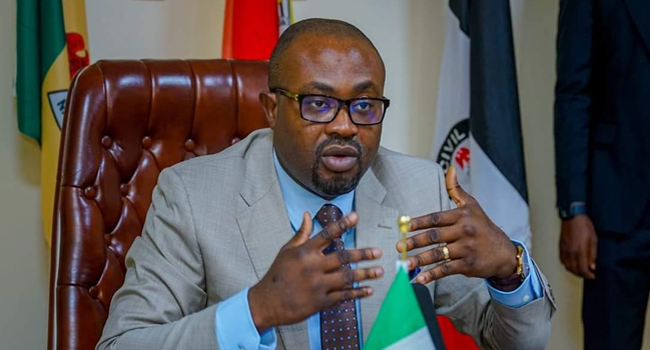Federal Government Scheduled Holidays for the upcoming Holiday Season and the New Year
In observance of Christmas and Boxing Day, the federal government has designated December 25th and 26th as public holidays.
It further designated Monday, January 1, 2024, as a public holiday in observance of New Year’s Day.
In a statement released on Friday, Peter Egbodo, the Director Overseeing Office of the Permanent Secretary of the Ministry of Interior, announced that “the Federal Government has declared Monday, December 25th, Tuesday, December 26th, 2023, and Monday, January 1st, 2024, as public holidays to mark Christmas and New Year Day celebrations, respectively.”
On behalf of the federal government, he congratulated Christians and all Nigerians at home and in the Diaspora on the occasion, quoting Minister of Interior Dr. Olubunmi Tunji-Ojo.
Dr. Tunji-Ojo exhorted Christians to follow Jesus’ example of selflessness, kindness, patience, and humility. righteousness and peace that His birth represents,” he continued.
“He stressed that economic growth and prosperity cannot be achieved without first establishing a climate of peace and security.”
The federal government has taken precautions to ensure the safety of its citizens, the minister said, particularly during the festivities.
However, Tunji-Ojo urged his fellow countrymen to remain vigilant and tell the authorities about any questionable individuals or actions. He claims that the Christmas season is a time for national discipline to safeguard lives and property.
“All residents must remain focused,” Dr. Tunji-Ojo cautioned, adding that 2024 will be a better year thanks to the president’s renewed hope plan. “The Minister extends his warmest Christmas and best wishes for a peaceful and prosperous New Year’s celebration to all Nigerians, particularly Christians,” the statement continued.
However, for many Nigerians, the holiday season does not appear promising. A lot of people can’t afford rice, beans, and other staples because of how much they’ve gone up in price.
After taking office in May, President Bola Ahmed Tinubu immediately set out to change the country in order to bring in investment and alleviate the cost of living crisis. Nigeria is the biggest economy in Africa.
Removing limitations on the naira currency and ending an expensive gasoline subsidy were his actions.
Since then, we’ve seen a tripling of fuel prices, a 41% decline in the value of the naira versus the dollar on the official currency market, and a 31% increase in food prices, according to the World Bank.
In November, overall inflation was more than 28 percent. A staggering 46% of the population lives below the poverty line, up from 40% in 2018, according to the World Bank. Nearly half of the world’s population, or 104 million people, live in poverty.
The Lagos market of Obalende has seen a slowdown in trading.
“We are unaware that Christmas is outside,” stated 41-year-old fish vendor Rifat Arigege.
Sweet melody In lieu of the expensive rice that is traditionally served during the holiday season, 28-year-old Samuel plans to cook a meal using cassava flour and pumpkin seed soup.
Neither rice nor the means to purchase holiday gifts for the kids. The wife of a teacher remarked, “We will just manage it and see.” They have three children.
The 59-year-old proprietor of a kitchen equipment store who goes by “Mrs. Betty” has made new clothing a luxury item. The well-known Balogun market was her last stop.
“I have to buy some things for my pregnant daughter and the grandchildren for Christmas,” she remarked. “I am forgoing any purchases for my personal use.”
Traders already had a rough year, and now the informal economy is feeling the pinch of a new cash crunch.
“The company didn’t progress very much due to the paucity of naira,” shoe seller Bidemi Bello, 48, said.
“There isn’t even a hint of Christmas in the air.”




